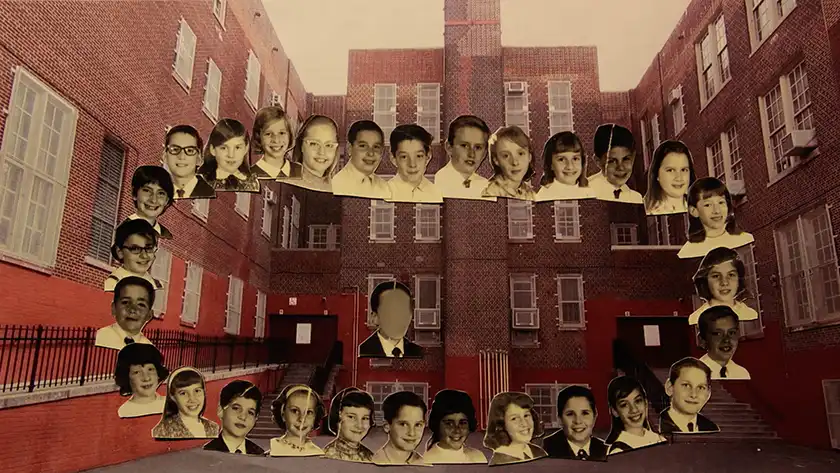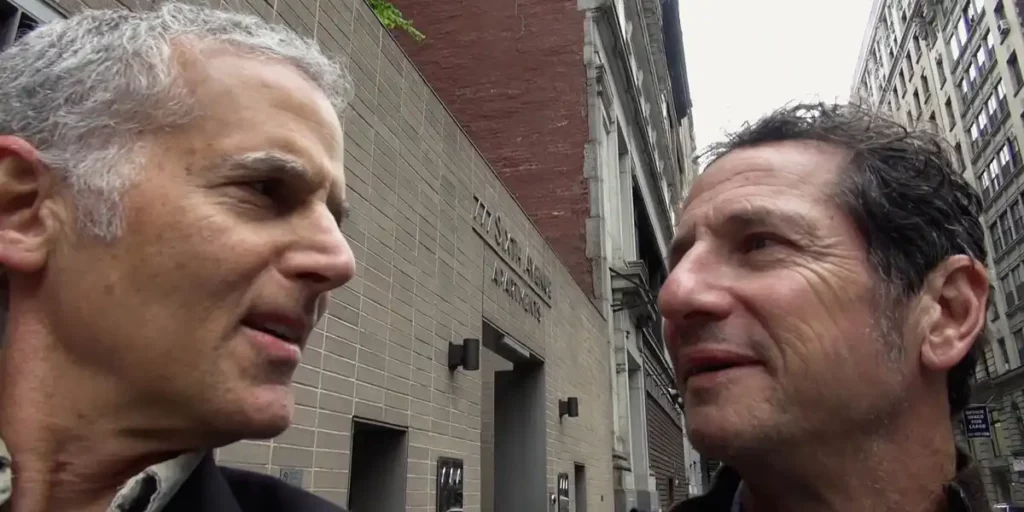When We Were Bullies may be deeply personal, but it stumbles on its own insecurities before it can begin to run.
It’s 1992, and director Jay Rosenblatt is making a film called The Smell of Burning Ants. Looking for a voiceover artist, he tracks down Richard, a man featured by one of Rosenblatt’s students in a class film, only to discover a remarkable coincidence: not only are they both displaced New York natives, but they went to the same elementary school, and were in the same fifth grade class – a class that inspired Rosenblatt’s film. They were also both deeply affected by one particular incident, as the class had collectively targeted, excluded and relentlessly bullied another student, also called Richard. This coincidence, and the memories it had stirred, sent Rosenblatt on a journey back five decades to gain some sense of closure on the incident. When We Were Bullies is the result: a piece of discovery and self-reflection, studying the unique cruelty of children.
The story is told simply, through montage of 1960s educational footage with stop-motion collage animation of Rosenblatt and his classmates, occasionally intercut with in-person interviews. It works well, for a while: along with Erik Ian Walker’s soundtrack, the visuals create a poignant sense of eerie nostalgia, yet the effect fades rapidly over the film’s half-hour runtime. As the film captures moments of powerful sentimentality alongside fairly mundane reminiscence, and displays them both as equals, the effect is less poignant than intended. Instead, the innate power of grief and loss becomes mired in the same distance that separates the story from the present, a distance that puts significant dampers on its resonance. As we hear the adult voices of classmates over their 11-year-old portraits, the distance alienates us from a specific and long-passed history and creates significant resistance to any attempt one may make to connect to it.

Above all, the film allows itself to be dominated by one question, and yet cannot satisfactorily answer it: why go back? It feels as though Rosenblatt is desperately attempting to justify the film’s own existence, while simultaneously and almost impulsively drawing our attention to its flaws before we consider them ourselves. He deliberately brings up that creating The Smell of Burning Ants felt like another act of exclusion against the slighted Richard, and wonders whether he was doing the same thing here, all before moving on without ever daring to provide an answer. When interviewing his old teacher, she says that she doubts anybody is going to watch the film, and repeatedly throws cold water in the face of the importance Rosenblatt had placed on the incident. Rosenblatt also makes repeated references to the original goals of the piece, even as these goals fall through, and the effect is a stubborn rigidity to a project even as one feels the wheels coming off.
What I was left with, at the end of When We Were Bullies, is the impression of a short film that needed to be even shorter, a film that relied far too heavily on pieces falling into place and could not replace them when they did not. Rosenblatt had set out with an admirable aim, inspired by what felt like a divinely guided moment of improbability, and yet refused to allow that aim to die as providence abandoned him. There is something admirable about this project, and I sincerely wish that it had been able to successfully pivot from its original destination to tell this story more confidently. Instead, Rosenblatt’s aim becomes watered down, stretched beyond its means, and while it frequently tracks a path alongside poignancy, it is never fully able to find it.
When We Were Bullies premiered online, at the 2021 Sundance Film Festival, on Thursday, January 28, 2021.

